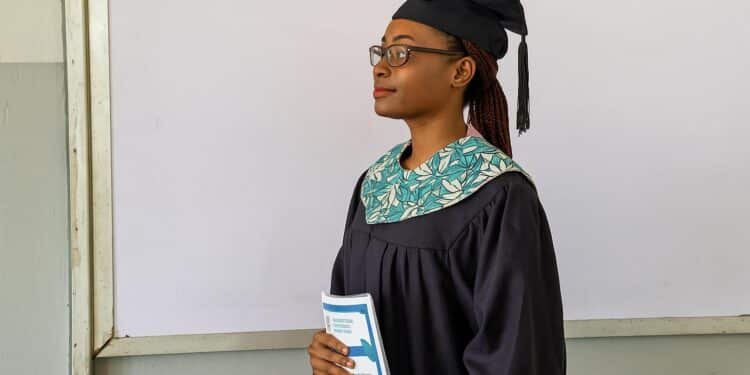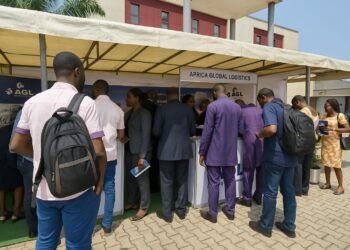State-backed agency nurtures new agritech minds
The National Agency for the Valorisation of Research and Innovation, better known as ANVRI, has again moved research beyond the laboratory. On 24–26 September in Brazzaville it shepherded three final-year students through licensing defences that centred on greener fertilisation. Their success highlights policy efforts to anchor science in local value chains.
Created to turn academic results into economic solutions, ANVRI offers technical guidance, equipment and small grants. This tangible support is calibrated to help young researchers refine protocols, complete field trials and articulate business cases that might attract future investors (ANVRI briefing, 2023).
Francophonie funds meet local ambition
The initiative was financed by the International Organisation of La Francophonie, whose youth and innovation programme earmarks resources for French-speaking African laboratories. At the Brazzaville Management Institute the trio channelled that funding into practical crop-yield experiments that speak directly to Congo’s food-security priorities (OIF project note, 2023).
Case study one: Tithonia-based biofertiliser for beans
Gabrielle Poudy Biboussi scored an impressive 17/20 by demonstrating how compost derived from Tithonia diversifolia leaves can raise green-bean output. Her protocol detailed collection, controlled decomposition and field application. By replacing mineral inputs with this leaf-based compost, local growers could curb costs while reducing chemical run-off into the Congo and Djoué rivers.
Case study two: Poultry litter versus pond sludge
Eros El Chaidai Mongonga compared two readily available organic amendments—poultry litter and fish-pond sludge—on cucumber plots. The side-by-side trials suggested each waste stream offers distinct nutrient profiles that can be matched to soil conditions. The jury awarded 16/20, citing methodological rigour and clear pathways to on-farm adoption (defence minutes, 2023).
Case study three: Stinging nettle compost for basella
Sagesse Delmiche Ekambi Etsa also obtained 16/20 by testing nettle-based compost on basella. Her work adds another biofertiliser option for peri-urban market gardeners supplying Brazzaville’s demand for leafy vegetables. Yield gains were accompanied by lower input bills, a combination ANVRI argues can improve household resilience to price shocks.
Why organic inputs matter for Congo’s growers
Chemical fertilisers remain expensive in land-locked Central Africa, where freight costs inflate retail prices. Smallholders often under-fertilise, dragging down yields. By converting farm and municipal biomass into nutrient-rich composts, the students’ prototypes align with national goals to boost production while cushioning producers from import volatility (Ministry of Agriculture strategy, 2022).
ANVRI’s Agritech pipeline gains momentum
Beyond academic mentorship, ANVRI’s Agritech project scouts early-stage concepts for incubation. The agency channels seed capital, connects start-ups with agronomists and explores co-development with established input distributors. Management believes the three biofertiliser studies could feed directly into this pipeline once pilot plots scale to demonstration farms.
Leadership and governance
ANVRI is chaired by Patrick Obel Okeli, whose mandate stresses transparency and measurable impact. Quarterly dashboards track graduate placements, patents filed and business partnerships concluded. Observers note that aligning metrics with the government’s National Development Plan ensures continued budgetary support and signals reliability to multilateral donors.
Skill building for a youthful workforce
All three researchers came from the Brazzaville Management Institute rather than a traditional agronomic faculty, underscoring the growing interdisciplinarity of Congo’s tertiary landscape. Blending business administration with crop science equips graduates to speak both the language of venture funding and that of extension officers.
Environmental dividends resonate with investors
Sustainable inputs limit nitrous-oxide emissions and water contamination, two indicators increasingly scrutinised by ESG-focused lenders. By documenting measurable yield responses, the students provide baseline data that could feed future carbon or biodiversity credits, opening supplementary revenue streams for community-level cooperatives.
Regional and francophone collaboration potential
Because Tithonia, poultry litter and nettle are common across Central Africa, replication potential is high. The OIF framework encourages cross-border peer exchanges, meaning the Brazzaville prototypes could soon inform trials in Cameroon or Gabon, multiplying research returns without significant additional funding.
Challenges ahead for scalability
Converting promising trials into commercial inputs still faces hurdles. Standardising nutrient content, securing regulatory approvals and convincing farmers accustomed to synthetic fertilisers will require concerted outreach. ANVRI plans demonstration days and radio segments to translate lab results into user-friendly agronomic advice (agency roadmap, 2023).
Financing options on the horizon
Early-stage capital might come from blended-finance vehicles pairing public guarantees with private equity. Development banks active in Brazzaville have signalled appetite for small-ticket agritech projects that combine climate and livelihood co-benefits. Successful fundraising would underline the credibility gained through rigorous academic vetting.
Policy alignment keeps momentum intact
Congo’s authorities promote import substitution and value addition in agriculture. By dovetailing with that agenda, the student projects secure political goodwill and administrative fast-tracking. Analysts consider such alignment crucial for maintaining policy continuity and de-risking private entry as the sector modernises.
Human capital gains ripple outward
Each successful defence sets a precedent, inspiring undergraduates to select practical topics and approach ANVRI for coaching. Over time, this iterative cycle fortifies a community of practice that blends academic rigour with market orientation, a feature donors often regard as missing in traditional extension services.
Outlook: from plots to market shelves
If compost formulas are validated at scale, Brazzaville could soon host micro-enterprises producing bagged biofertiliser, supplying urban gardeners and outgrower schemes. Longer term, processed fertiliser exports to neighbouring states could emerge, turning science projects into foreign-exchange earners while reinforcing Congo’s green narrative.












































